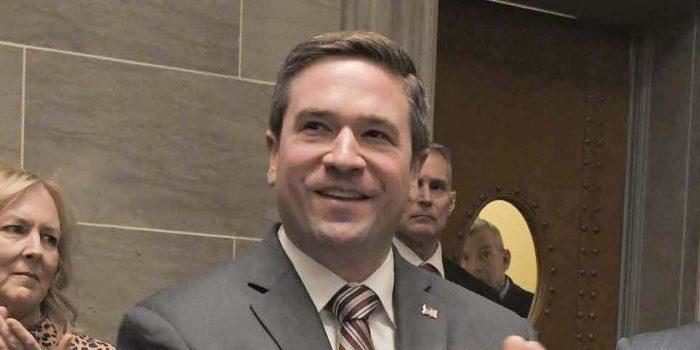() Missouri’s lawsuit against President Joe Biden’s administration is showing how the federal government is influencing social media companies to violate the constitutional right to free speech held by a platform’s users, according to Republican Attorney General Andrew Bailey.
“COVID was the Trojan horse that got the enemy behind the gate,” Bailey said in an interview with the Center Square.
“But we have every reason to believe that the censorship enterprise has grown so rapidly that the federal government had to develop a new bureaucratic apparatus to manage the censorship,” he added. “And it spread to topics beyond COVID.”
Bailey is awaiting a ruling by the Fifth U.S. Circuit Court of Appeals in New Orleans on a preliminary injunction by the U.S. District Court prohibiting the Biden administration from communicating with social media companies concerning content it believes to be misinformation. Missouri v. Biden was filed by former Missouri Attorney General Eric Schmitt, now a U.S. senator.
Numerous organizations filed briefs in favor or against the injunction with the appellate court. The Electronic Frontier Foundation filed a neutral brief and stated the lower court failed to address key areas.
“The preliminary injunction is internally inconsistent with exceptions that seem to swallow many of its prohibitions,” the brief states.
“It does not provide adequate guidance to either the government or to anyone else seeking to hold the government to its proscriptions,” it continues. “This Court must independently review the record and make the searching distinctions that the district court did not.”
David Greene, senior staff attorney for the Electronic Frontier Foundation and author of its 43-page brief, said the district court judge failed to evaluate the scope of the prohibition.
“We’re in the position we’re in now because the trial court didn’t treat this as a hard issue,” Greene said in an interview with the Center Square. “I don’t think the nuance was appreciated and they didn’t do the hard work to really distinguish between what was appropriate and inappropriate government conduct.”
Bailey said the lawsuit could alter the marketplace of the social media companies.
“I think we’ve got to build a wall of separation between tech and state,” Bailey said. “That’s the very purpose of this lawsuit. The wall of separation is needed now more than ever as we move into an election cycle.”
Bailey also said Section 230 of the Communications Decency Act is being misinterpreted by the courts and, consequently, shielding social media companies from open-market conditions that might force them to deal with an unconstitutional demand by the federal government or other entities.
“But look, it doesn’t matter because at the end of the day, the founding fathers understood the timeless principle codified in the First Amendment right to free speech,” Bailey said.
“It didn’t matter that in the 1700s it was pamphlets, in the 1920s it was radio, in the 1950s it was television and in the 1990s it was the internet. Now it’s big tech—social media,” he continued. “No one would tolerate it if we were talking on our cell phones and the Department of Justice muted us when we started saying things that they didn’t like.”

